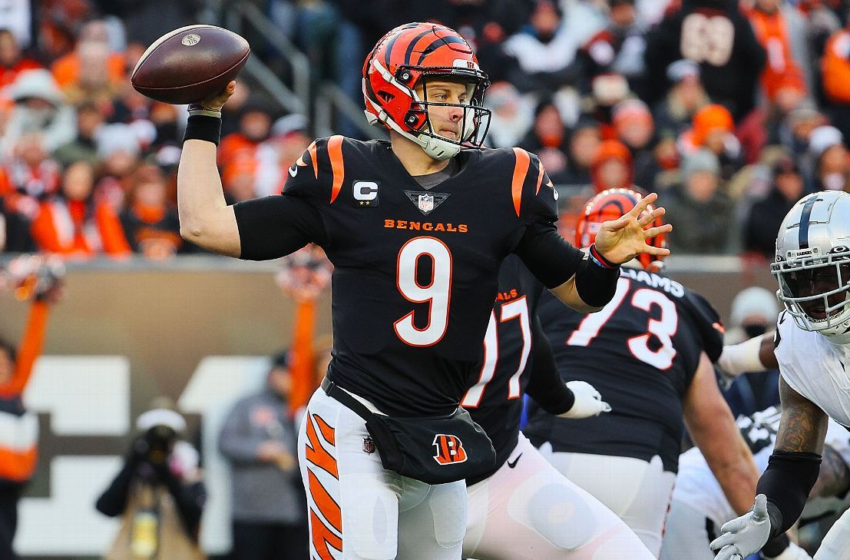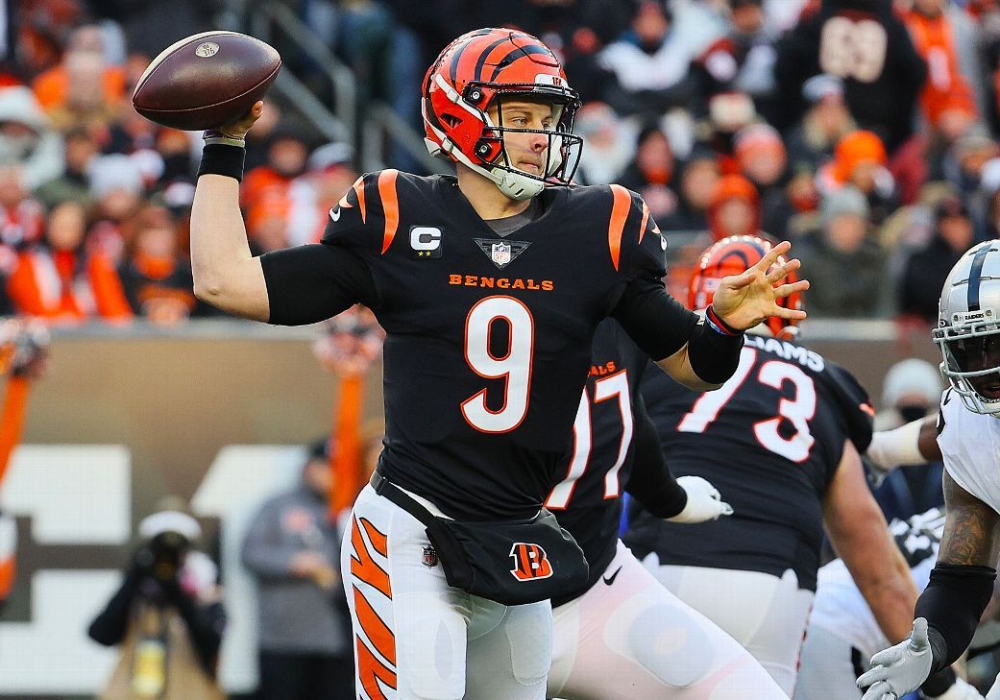Your instincts were correct if you felt like NFL officials were throwing more flags in 2021. Penalties ticked up to 13.88 per game during the regular season, a bit higher than in the 2020 season (13.14) but still way below where they were in 2019 (16.17) and 2018 (15.87).
That’s the longer-term context as you watch this year’s postseason games. It would be a surprise if we saw many penalty-filled games, and with any luck we’ll spend the next four weeks talking about the performance of players and coaches, and not about the fouls that were called (or uncalled) against them.
But there are many rules-based twists and turns to consider beyond flags. In the 2020 AFC Championship Game, for instance, then NFL senior vice president Al Riveron allowed a review for a non-reviewable play. Ultimately, he reversed a call that should not have been looked at in the game that decided who would represent the AFC in the Super Bowl.
We’ll have all of your officiating needs covered in this post, which will be updated as needed with rule explanations, important context and other officiating trends. Come along for the ride. (The most recent plays are at the top.)
Errant whistle on Cincy touchdown
Raiders-Bengals wild-card game, 1:51 remaining in second quarter
What happened: Bengals quarterback Joe Burrow scrambled toward the right sideline on a third-down play from the Raiders’ 10-yard line. With the ball in the air, a whistle could clearly be heard on the NBC broadcast. Bengals receiver Tyler Boyd caught the pass for a touchdown.
How it was resolved: After a lengthy discussion among officials, led by referee Jerome Boger, the play was rule a touchdown.
Analysis: Unless the whistle came from the crowd or someone other than one of the seven officials on the field, this should not have been a touchdown. There are two options here. Either the whistle was intended to rule Burrow out of bounds, or it was an inadvertent whistle. In either case, NFL rules require the play to be end at the time of the whistle.
NFL rule 7, Section 2, Article 1(m) states: “[W]hen an official sounds the whistle erroneously while the ball is still in play, the ball becomes dead immediately.” In this case, the rule goes on to state: “If the ball is in player possession, the team in possession may elect to put the ball in play where it has been declared dead or to replay the down.”
So the touchdown should not have counted, and the play should have been re-played. It is not reviewable. Players often stop playing when they hear a whistle, and it’s inherently unfair to allow post-whistle action to count.
A similar play occurred during a 2015 game between the Patriots and Bills. In that instance, referee Gene Steratore correctly halted the play, even as Patriots receiver Danny Amendola was running upfield, but erred in placing the ball at the spot where Amendola was when the whistle blew.
Burrow stayed in bounds to make it 20-6 😱
(via @NFL)pic.twitter.com/rWdbAbXmqs
— ESPN (@espn) January 15, 2022
Raiders start drive at 2-yard line after returner steps out of bounds
Raiders-Bengals wild-card game, 1:18 remaining in first quarter
What happened: Raiders kickoff returner Peyton Barber grabbed the bouncing ball near the sideline and stepped out of bounds at the 2-yard line.
How it was resolved: Barber was ruled down at the 2, putting the Raiders in terrible field position for their third possession of the game.
Analysis: Barber was trying to capitalize on a little-known NFL rule in an effort to get the ball marked at the 40-yard line. What he wanted to do was step out of bounds and then touch the ball. When a ball touches a player after he has established himself out of bounds, the ball is ruled out of bounds at that point. Had Barber stepped out first, the Bengals would have been penalized for a kickoff out of bounds, and by rule, referee Jerome Boger would have spotted the ball the 40. But because Barber grabbed the ball before that, he was ruled to have run out of bounds with possession of the ball.
Multiple teams have tried to leverage that rule in recent years by deliberately stepping out of bounds and then reaching for the ball, most notably the Green Bay Packers‘ Randall Cobb in 2012.












